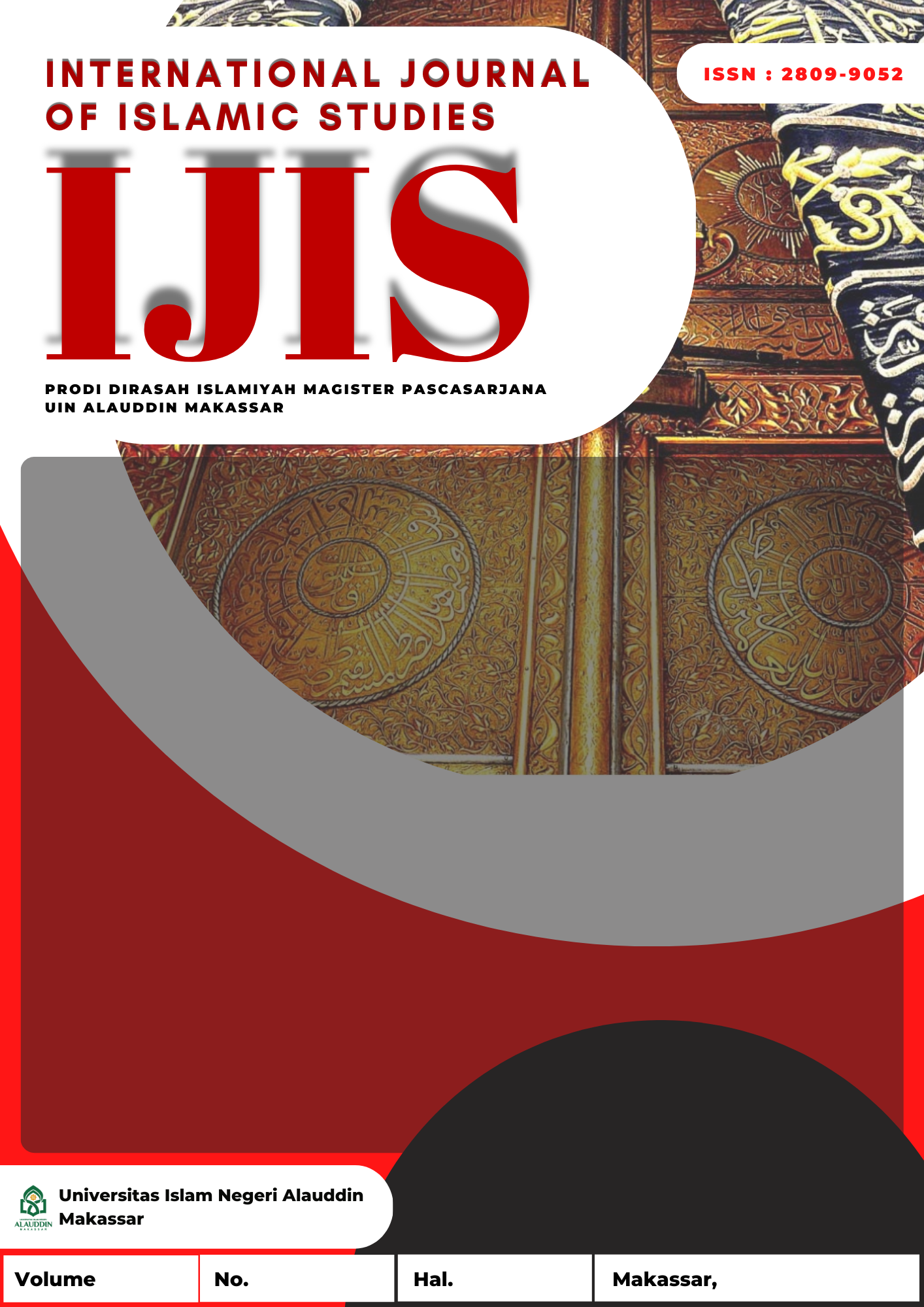ENVIRONMENTAL PROTECTION AND MANAGEMENT IN LAW NUMBER 11 OF 2020 CONCERNING JOB CREATION OF MASLAHAH PERSPECTIVE
Abstrak
The main problem in this research is how to protect and manage the environment in Law no. 11 of 2020 concerning the Creation of Problem Perspectives. This study uses library research that collects materials from previous research. Based on its nature, this research is qualitative. The approaches in this research are the theological, statute, and conceptual approaches. The materials used are the quo laws and books or research results related to the discussion. Data processing techniques describe the object under study, make comparisons, evaluate, and make arguments for the research. The research shows that, first, several provisions for changes in the Job Creation Law on the amendments to Article 18 paragraph (2) and Article 19 paragraph (1) of Law no. 41 of 1999. Both articles were weakened by the Job Creation Law, namely, weakening environmental permits and impacting environmental management, which is not worth maslahah. Second, the abolition of Article 36 and amendments to Article 39 paragraph (2) of Law no. 32 of 2009 weakened the role of the community in protecting their environment. Third, there is an amendment to Article 88 of Law no. 32 of 2009 by the Job Creation Act.
Referensi
Abdullah, Muhammada bin Abu Babakar bin al-Qayyim al-Jauziyah Abu. I’lam al-Muwaqqi’i>n ‘an Rabb al -‘A>lami>n, Juz III. Beirut: Da>r al-Jail, t. t.
al-Buthi,Muhammad Sa’id Ramadhan.Dawa>bit Maslah}ah fi Syari>’ah al-Isla>miyyah. Beirut: Muassasah al-Risa>lah, 1990.
al-Buthi, Sa’id Ramadhan. Dhawabit al-Mashlah{ah Fi al-Syari’ah al-Islamiyah. Beirut: Mu’assasah al-Risalah, 1992.
al-Ghazali, Abu Hamid. al-Mustashfa min ‘Ilmi al-Ushul. Beirut: Da>}}r al-Kutub al-‘Ilmiyah’, 1998.
al-Ghazali, Muhammad. al-Mustasfa min Ilmi Ushul, Tahqiq Muhammad Sulaiman al-Asyqar. Beirut/Libanon: al-Risalah, 1997.
al-Shatibi, Abu Iaaq. al-Muwa>faqa>t. Beirut Dar al-Ma’rifah, t.t.
al-Syathibi, Abu Ishak. al-Muwafaqat fi Ushul al-Syari’ah. Beirut: Da>r al-Ma’rifah, 1973.
Asyu>r,Muhammad Thahir bin.Maqa>sid al-Syari>’ah al-Isla>miyyah, Juz II. Beirut: Muassasah Fua>d, 2004.
at-Thufi, Najamuddin. Kitab al-Ta’yin Fisyarhi al-Arba’in. Beirut Libanon: Mu’assasah al-Rayyan al-Maktabah al-Malikiyyah, 1998.
Gassing,A. Qadir. Fiqh Lingkungan “Telaah KritisTentang Penerapan Hukum Taklif Dalam Pengelolaan Lingkungan Hidup”, h. 145. Lihat juga, Suryani, Pengarusutamaan Hifdh al-Alam sebagai Bagian Maqa>sid al-Syari>’ah,al-Tahrir, vol. 17 no. 2, 2 November, (2017). h. 139.
Hallaq, Wael B. “The Primacy of The Qur’an in Shatibi Legal Theori” . Leiden: Ej-Brill, 1991.
Harun. Pemikir Najamudin at-Thufi Tentang Konsep Maslah{ah sebagai Teori Istinbath Hukum Islam, Jurnal Digital Ishraqi vol. 5 no. I (2009), h. 24.
Hasan, Husain Hamid. Nadzzriyyah al-Maslahah fi al-Fiqh al-Islamy. Kairo: Da>r al-Nahdhah al-Arabiyah, 1971.
Kadek Sarna, Dkk, Hukum Lingkungan, Teori Legislasi dan Studi Kasus (Catatan Editor, Menyelamatkan “Ibu Kehidupan” Laode M.Syarif & Andri G. Wibisana). Sumber catatan ini diambil dari buku hukum lingkungan yang merupakan hasil dari tulisan kolaborasi beberapa dosen fakultas hukum di Indonesia, mengutip bagian awal yang merupakan poin dari catatan editor yang menggunakan nomor angka romawi.
Kementrian Agama RI.al-Qur’an dan Tafsirnya (Edisi yang Disempurnakan) Jilid 7. Jakarta: PT. SinergiPustaka Indonesia, 2012.
Khalaf, Abdul Wahab. Ilmu Usul Fiqh, Alih Bahasa Masdar Helmi. Cet. II; Bandung: Gema Risalah Press, 1997.
Machmud, Syahrul. Penegakan Hukum Lingkungan Indonesia. Yogyakarta: Graha Ilmu, 2012.
Meleong, Lexi J. MetodologiPenelitianKualitatif. Bandung: RosdaKarya 2002.
Munawwair, Ahmad Wrson. Kamus al-Munawwir .Surabaya: Pustaka Progresif, 1997.
Pasaribu, Muksana. Maslah}ah dan Perkembanganya Sebagai Dasar Penetapan Hukum Islam, Jurnal Justitia vol. 1, no. 4 (2014), h. 357.
Rahman, Fazlur. Islam and Modernity: Transformation of an Tradisional. Chicago: Chicago University Press, 1980.
Shihab, Quraish.Membumikan al-Qur’an. Bandung Mizan, 2013.
Shihab,Quraish.Tafsir al-Misbah: Pesan, Kesan dan Keserasian Al-Qur’an, vol. 10. Jakarta: Lentera Hati, 2002.
Soemarwoto,Otto.Indonesia dala Kancah Isu Lingkungan Global. Gramedia Pustaka Utuama, 1972.
Syathibi,Imam.BapakMaqa>s}id al-Syari>’ah Pertama, http://islamlib.com. Diakses pada tanggal (11 mei 2022).
Tucker,Mary Evelyn dan John A. Grim, Worldviews and Ecology: Religion, Philosophy, and the Environment. New York: Orbis Book, 1994.
Wrdani. “Memformulasikan Fiqh al-Bi’ah: Prinsip-prinsip Dasar Membangun Fiqh Ramah Lingkungan”, Jurnal al-Mustawa vol. 1 no. 1, (2009), DPPAI, UII.
Zuhaili, Wahbah. Ushul al-Figh al-Islamy, Juz II. Beirut: Da>r al-Fikr, 1996.
Authors who publish with this journal agree to the following terms:
1) Authors retain copyright and grant the journal right of first publication with the work simultaneously licensed under a Creative Commons Attribution License that allows others to share the work with an acknowledgement of the work's authorship and initial publication in this journal.
2) Authors are able to enter into separate, additional contractual arrangements for the non-exclusive distribution of the journal's published version of the work (e.g., post it to an institutional repository or publish it in a book), with an acknowledgement of its initial publication in this journal.
3)Authors are permitted and encouraged to post their work online (e.g., in institutional repositories or on their website) prior to and during the submission process, as it can lead to productive exchanges, as well as earlier and greater citation of published work (See The Effect of Open Access).







